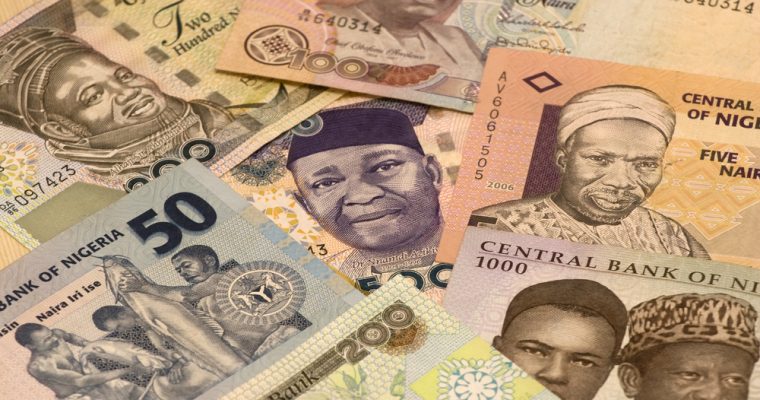
Inflation runs high in Africa and bitcoin could be a potential alternative to regional currencies. African central banks have consistently followed policies that have eroded the purchasing power of their citizen’s money. As a result, bitcoin will offer Africans a choice and another option for money as a store of value.
Bitcoin has been portrayed by many as a medium of exchange for illegal and unground activities. Less attention has been devoted to the use of bitcoin as a way for people to circumvent disastrous, governmental policies that are so common around the world. We know bitcoin demand has been strong in Venezuela and Zimbabwe. How have the most populous African countries managed their fiat money stock?
Fiat currency, or money that has value by government decree, has been created out of thin air by central banks around the world. For the most part, rich western democracies have done an OK job of managing monetary policy. Remember, the two most important goals of a central bank are stable prices and economic growth.
That’s not to say the Fed has been perfect. There is tons of academic literature that argues Fed policy pushed a normal recession into the Great Depression. In addition, Easy Al’s policies can be blamed for artificially low-interest rates in 90’s which created the housing bubble and the Great Recession. Furthermore, Austrian Business Cycle Theory is devoted to explaining that wild swings in the business cycle are caused by central bank mismanagement of the money supply. This creates a perverse interest rate price, which leads to malinvestment and misallocation. Analyzation and critique of the Fed is a different article.
This article will look at the 4 most populous African countries and examine how they have managed monetary policy. We will look at inflation rates for these countries and assess how the monetary authorities have fared with the intended goal of stable prices.
Inflation
The Federal Reserve has targeted an inflation rate of 2%. They feel that 2% is perfect for stable prices and economic growth. The consequences of high inflation are many. High inflation eats into people’s savings and makes it difficult to plan and invest. It makes long-term financial decisions impossible and high, persistent inflation leads to a shrinking production possibility frontier. This amplifies the burden of scarcity. With less planning and investment, there is less capital stock. Less capital stock in the hands of workers leads to less productivity and more poverty.
The following graphs illustrate recent inflation rates in the 4 most populous countries of Africa. Once again, 2% is the goal here. The first graph is for the United States. Nigeria, Egypt, Ethiopia and The Republic of Congo are the others.
Monetary Mismanagement
Nigeria, Ethiopia, Egypt, and Congo have all been a monetary disaster in the last year. Congo’s inflation rate has hit around 70 percent. Egypt’s is in the 30’s. Nigeria is in the high teens and Ethiopia is in double digits. The four most populous African countries’ monetary policies have been a financial catastrophe.
The people have been let down in these four countries by their financial authorities. Milton Friedman essentially won a Nobel prize proving that sustained inflation is always a monetary phenomenon. In the end, it’s always too many dollars chasing too few goods. Increased monetary growth increases prices but doesn’t increase real output. Increasing the money supply does nothing in the fight against scarcity. Friedman argued that inflation is always and everywhere a governmental failure.
There is lots of economic writing on why governments would be this bad with their money. Many governments have not separated the regime in power from the central bank. They have used the fiat printing press as a personal bank account. Regimes have also used expansionary monetary policy to get incumbents elected in elections. In addition, governments have monetized their debt and spent newly printed fiat on earmarks to attract voters and allies.
Market-Based Solution
The population of these four countries is approximately 450 million people. These citizens are having their savings eaten alive almost daily. They can’t plan, save and invest in their futures. Bitcoin offers a hope to these people. One does not need a bank account, an ID, or a national social security number to use bitcoin. Bitcoin will continue to take market share from regional fiat currencies for use as a store of value. People are tired of watching their purchasing power vanish due to inflation. These four countries alone produced over 800 billion dollars of GDP per year. Bitcoins market cap today is around 300 billion.
Bitcoin still fluctuates wildly but as more participants enter, the volatility will smooth out. The market is smart and disciplined. Prices will ultimately reflect the collective knowledge and groupthink of millions of people. Essentially, it comes down to the same debate that a lot of macroeconomics is about. Who is better at allocating? The collective analysis of millions of market participants or a few government officials, lobbyist and bureaucrats? I side with the market and I think Africans will eventually as well.
Hi! I am a robot. I just upvoted you! I found similar content that readers might be interested in:
https://bitcointalk.org/index.php?topic=2810009.new
Downvoting a post can decrease pending rewards and make it less visible. Common reasons:
Submit